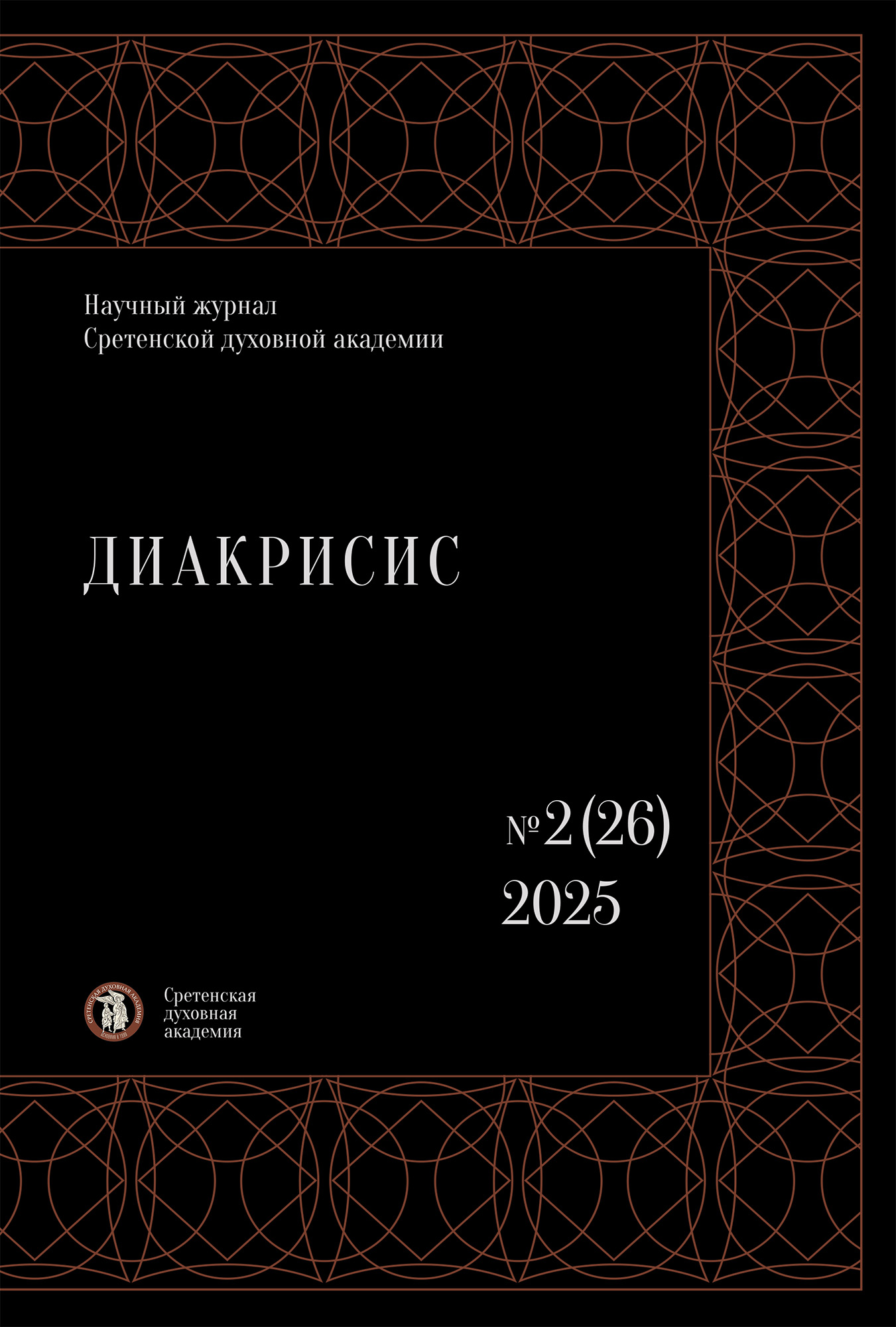Theological and Apologetic Problems of Eusebius of Caesarea’s Use of the Term «Second Cause» in the Treatise «The Preparation of the Gospel»
Keywords:
The Second Cause, Logos, Son of God, Trinity, Eusebius of Caesarea, Gospel preparation, theology, apologetics, philosophy, middle Platonism, neoplatonism, subordinationismAbstract
The apologetic literary heritage of Eusebius of Caesarea is characterized by the search for and synthesis of similarities between Christian doctrine and the ideas of ancient philosophers. To reveal the doctrine of Christ the Savior in the treatise «Praeparatio evangelica», the apologist uses various terms, among which the main and most rare for Christian theology is «Second Cause», a term used by representatives of Middle Platonism and Neoplatonism. In the article, based on the analysis of the apologetic and theological features of the use of the term «Second Cause», an attempt by Eusebius to formulate aspects of Christology is considered. The author of the article concludes that, firstly, Eusebius of Caesarea was the first to use the term «Second Cause» in relation to Christ, synthesizing the doctrine of the Logos — the Son of God with the terminology of Hellenic philosophy based on biblical quotations and an apologetic method associated with the theory of plagiarism. Secondly, Eusebius’ choice of this term proves the presence of subordinationism in the apologist’s theology and the connection with his theology of imperial Christianity. Thirdly, when analyzing the quality of Eusebius’ citation of textual passages from the works of Hellenic philosophers, inaccuracies in the citation of some passages are revealed, as well as the adaptation of philosophical ideas to the semantic categories of Christian teaching necessary to Eusebius for the sake of an apologetic effect.







